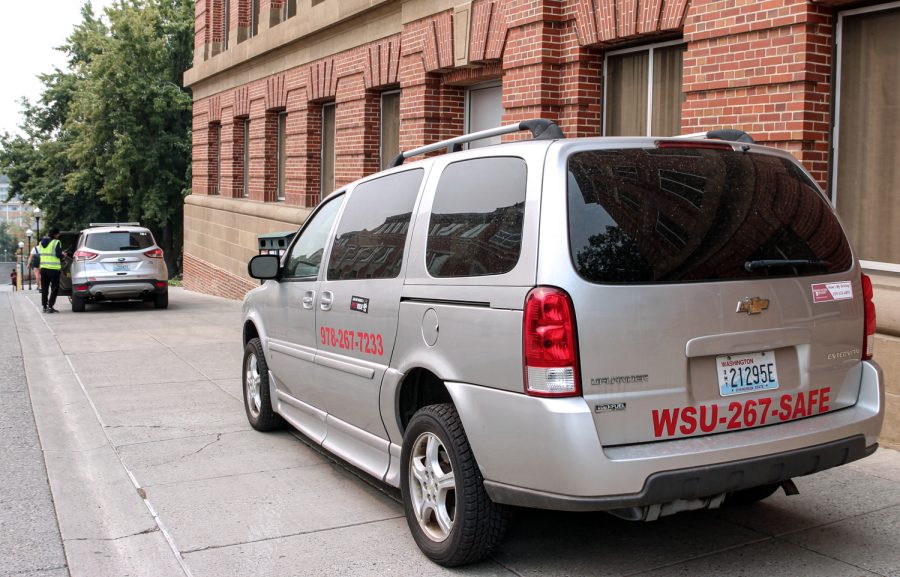Cougar Safe Rides faces staffing shortage
Students may face longer wait times
Cougar Safe Ride vehicles prepare to depart from Wilson-Short Hall, Sep. 12.
September 14, 2022
After a delay in training volunteers and conducting background checks, Cougar Safe Rides has reopened this month despite facing staffing issues.
“We are the smallest safe rides program in the nation that services the most students, with the lowest budget,” said Joshua Wagner, operation programs supervisor.
CSR, previously known as Women’s Transit, is a free program that provides rides at night for all students on and off campus, within Pullman’s city limits, he said. The service is run out of the Women*s Center and is available for use Wednesday and Thursday from 8-11 p.m. as well as Friday and Saturday from 8 p.m.- 2:00 a.m.
Wagner said the service has been open for a few weeks, however, CSR is low on volunteers. The program initially received about 30 students who were interested in the program during a tabling event, but less than 12 ended up being trained and going through background checks.
As students are added to the wait list for rides, they must wait for longer periods of time and often end up canceling their ride due to the staffing shortage, he said.
“Sometimes [volunteers] have to stop answering the phone and just work through the waitlist they already have,” he said.
Ideally, CSR would have about 12 workers every night, allowing it to send all four of its vehicles out and reducing wait time for students.
During the semester, CSR can receive up to 100 students needing to be picked up per night. This semester, the program is averaging 30-50 students a night, usually on the weekends, as it is only the beginning of the year, he said.
Wagner said he expects the number of students using the program to increase as more students remember the service is available for them.
While many students essentially use the service as a free Uber, the service was originally intended to to reduce sexual assault, he said. CSR is able to drive students to the hospital if they have been sexually assaulted and can call 911 if students are at risk of alcohol poisoning.
Jessalynn Isidro, junior pre-veterinary major, said she has not used CSR because it is simpler to walk to her dorm rather than bother volunteers despite feeling unsafe. Additionally, the service is not operable after her lab on Mondays.
Isidro takes a nighttime class that ends at 10:15 p.m. and feels scared walking home alone in the dark. In her lab, students formed a group chat to message each other when they reach their homes to ensure their safety.
Wagner said that he does think CSR is a good resource, however, it does not entirely eliminate the chance of something happening and encourages students to be careful while walking around campus late at night.









